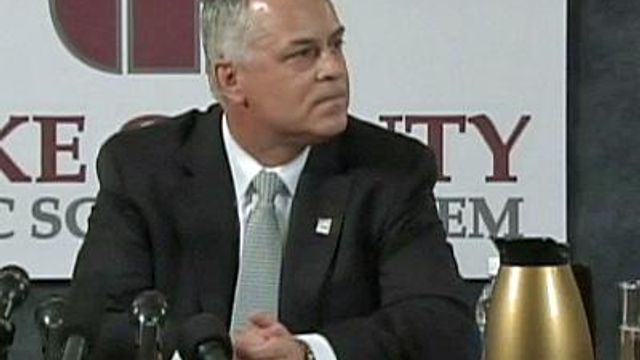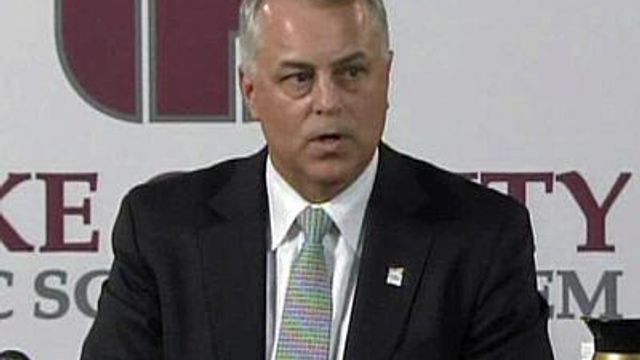Tata: Student achievement, not diversity, will be focus
When it comes to students, Wake County's new superintendent insists his focus will be on improving their academic performance and preparing them to be competitive on the world stage - not diversity.
Posted — Updated“We have to look at what is best for these students and if what we’re trying to do is create a diverse environment and we’re not concerned about their student achievement, then that’s not something I’m interested in,” Tony Tata told reporters Friday afternoon at the Wake County Public School System’s administrative building in Raleigh.
Tata was in Raleigh Friday on the second day of a three-day visit to meet with school leaders, educators and the community as he prepares to take over the post at the end of the month.
He meets Saturday morning at Saint Matthews AME at 1629 Bennett St. in Raleigh with clergy and community leaders who support the school system's policy of busing students across district lines to help achieve socio-economic diversity. Proponents worry the vote of the school board last year to change that policy will lead to segregated schools and unequal educational opportunities.
“What I’m interested in is student achievement, and I’m going to approach everything from a student achievement perspective,” he said. “Then, from that point forward, we can make other decisions about other things.”
Ending the school system’s student assignment policy of has been a point of contention among Wake County school board members and the community for more than a year.
Last year, the board’s conservative majority voted in favor of a new policy, to take effect in 2012-13, that would assign students to schools closer to where they live and eliminate diversity as a factor in the student assignment process.
Tata said Friday he likes the concept of neighborhood schools and that it has been successful in District of Columbia Public Schools, where he currently serves as chief operating officer.
“On diversity, studies have shown that students may not have grown the way we want them to grow,” Tata said. “We have to look, first and foremost, at what will increase student achievement.”
Supporters of the neighborhood schools policy say neighborhood schools will do just that.
But opponents, such as the state chapter of the NAACP, believe that neighborhood schools will lead to segregation and prevent economically disadvantaged students from getting the same education as their counterparts. In addition, they fear a high turnover rate of teachers.
“When you look at the diversity and school assignment, I’m still listening to everybody. I’m still trying to learn,” Tata said. “Come Jan. 31, I think I will have a good feel for the student assignment process and where we intend to go with that.”
Tata – a retired military officer and Republican political pundit – has said he plans to meet with community members Saturday about the student assignment debate, but some members of the community have said they are fearful that he has already aligned himself with the conservative school board majority that selected him.
“I think what everybody’s going to learn about Tony Tata real quick is that I’m my own man. I’m not going to toe anybody’s line but the one that increases student achievement,” he said. “Anybody who thinks I’m in their pocket has got another thought coming.”
“I was very clear with this board when I interviewed with them. I said, ‘You all need to know what you’re getting with me and that is a very forceful leader that leads from the front line, backward,’” he added.
“So, I’m going to be in these schools. I’m going to be talking to teachers, I’m going to be talking to principals as I’ve been doing, and I’m going to make sure they have what they need to do their jobs.”
• Credits
Copyright 2024 by Capitol Broadcasting Company. All rights reserved. This material may not be published, broadcast, rewritten or redistributed.






